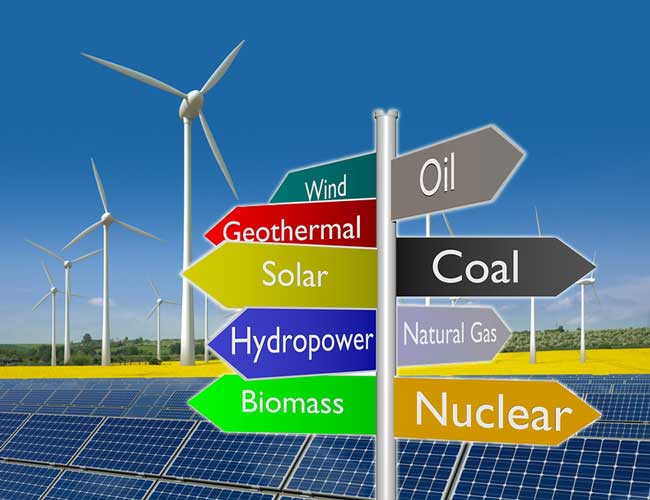Pending Law Mandating Increased Use of Renewable Energy Debated

A controversial bill that will change where Delawareans get their electricity from is heading to the governor’s desk for his expected signature.
Senate Bill 33 completed its passage through the General Assembly with a 29 to 12 vote in the House of Representatives Thursday, after earlier clearing the Senate 13 to 8. Once enacted, the legislation will significantly increase the portion of electricity delivered to consumers that originated from renewable resources.
Currently, utilities must increase their percentage of renewably generated electricity according to a schedule of minimum annual benchmarks, topping out at 25% in the year 2025. Additionally, 3.5% of total electricity in that year will need to come from solar panels.
The new mandate will require utilities to continue to ramp up their use of renewable electricity to achieve a 40% share by 2035, with 10% of all electricity coming from solar photovoltaics.
While the bill deals specifically with Delmarva Power, the nine municipalities operating electric utilities in the state and the Delaware Electric Cooperative are required by law to operate “a comparable program to the renewable energy portfolio standards.”
Delmarva Power, the Delaware Municipal Electric Corporation, and the Delaware Electric Cooperative have remained publicly neutral on the bill, neither supporting nor opposing the legislation.
Supporters of the mandate say it is needed to reduce the use of fossil fuels and to battle climate change and sea-level rise. “[The bill] moves us into the real world: the preservation of our planet; the preservation of our environment; the preservation of clean water; [and] the preservation of clean air,” said bill co-sponsor, State Rep. John Kowalko, D-Newark.
Critics believe the new mandate could further inflate The First State’s already high cost of electricity. According to the U.S. Energy Information Administration, Delaware’s electricity is more costly than that in two-thirds of the other states.
House Republicans offered three amendments to build consumer cost protections into the bill, most of which are currently law but will be removed by the new legislation. All three proposals were defeated along party lines.
Testifying before the House vote on the bill, Department of Natural Resources and Environmental Control Secretary Shawn Garvin said while the new law eliminates existing consumer protections, they will be replaced by a simpler protocol.
David T. Stevenson, Director of the Caesar Rodney Institute Center for Energy & Environment, disputes that claim. In written comments published earlier in the week, Mr. Stevenson said the threshold on the consumer protection mechanism is set “so high it will be ignored.”
Additionally, Mr. Stevenson maintains the best way to lower carbon dioxide emissions is to let the free market work. “The research pipeline is full of ideas on how to use carbon dioxide capture, alternative fuels such as hydrogen and nuclear, energy efficiency, smart grids, demand-side management, and hybrid generation and storage options,” he wrote. “All of these alternatives offer reliable service with low or no emissions.” According to Mr. Stevenson, this approach led to the U.S. lowering CO2 emissions “14.4% from 2005 to 2019, primarily by shifting from higher cost, higher-emitting coal to lower cost, lower-emitting natural gas.”
On Thursday, State Rep. Ed Osienski, D-Newark, one of the prime sponsors of the bill, told his colleagues in the House that claims that a 40% renewable energy mandate would make the regional power grid unstable were false. However, the remarks he offered in defense of that position seemed to undermine his claim.
“In 2014, the regional energy grid operator, PJM, looked at the energy grid stability up to 30% renewables,” Rep. Osienski said. “They concluded there was no problem with energy stability up to 30%. They never looked above 30%. They offered no opinion above 30%.”
Rep. Osienski said that many of the bill’s supporters were disappointed it did not go further, setting more ambitious renewable energy targets.
State Rep. Rich Collins, R-Millsboro, offered a counterpoint, saying legislators lacked the expertise and foresight needed to enact energy policies that will impose restrictions on energy utilities for the next 14 years.
“We are not qualified to do this,” Rep. Collins told his colleagues during the virtual debate. “We should be setting broad parameters, take the regulations out of the way, and let the companies (utilities) figure out the best way to do it.”
Rep. Collins also criticized the economic impact of the pending law. Since Delaware lacks renewable energy equipment manufacturing facilities, he said the legislation will create few local jobs. He added that other than solar energy, Delaware has very limited renewable power resources — requiring utilities to buy renewable electricity from out-of-state producers to meet the mandate.